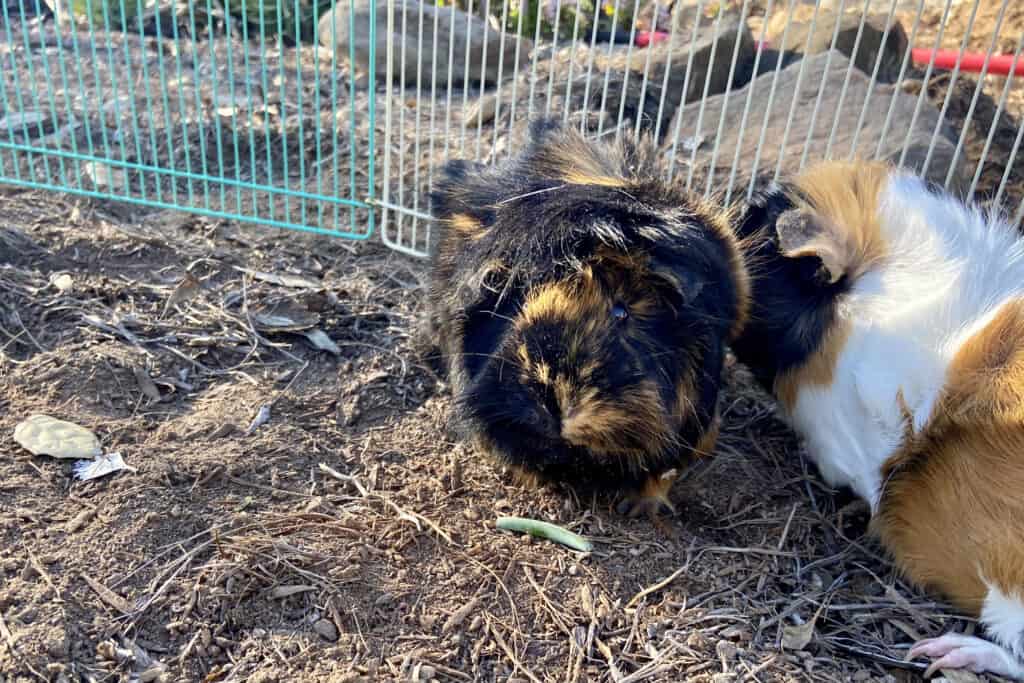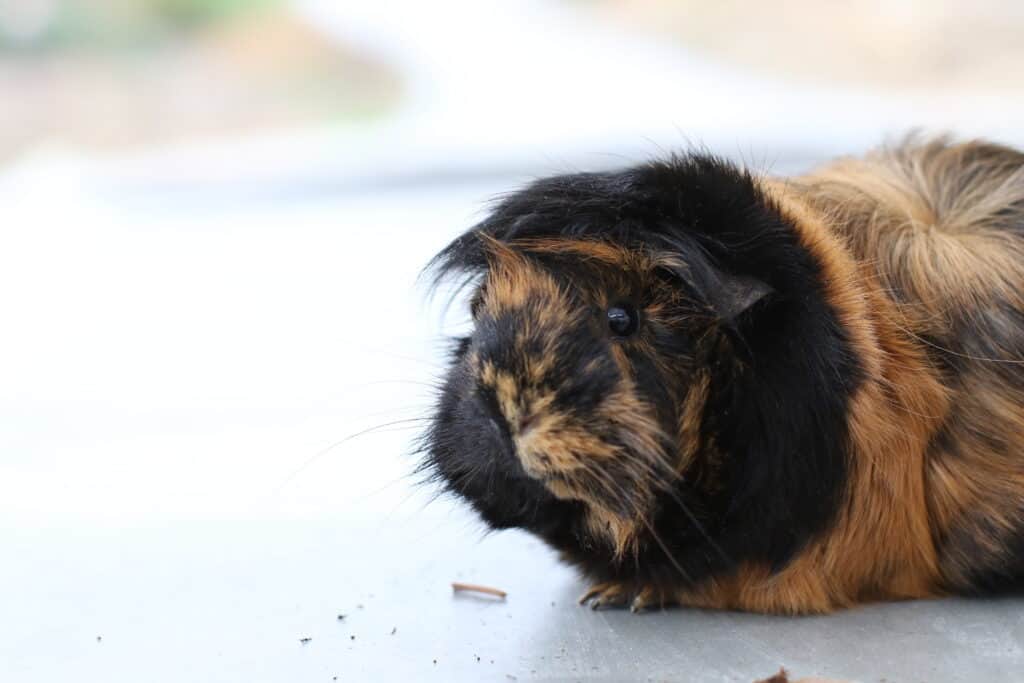As an Amazon Associate we earn from qualifying purchases.
Guinea pigs are cute little creatures that make great pets. They are very social animals and love to play and cuddle with their owners. One of the things that they enjoy eating is fruits, which leads us to the question, can guinea pigs eat watermelon?
Can A Guinea Pig Eat Watermelon?
These furry friends are cute, social creatures that make great pets. One of the things owners must do is provide them with a healthy diet. If you’re wondering whether or not they can eat fresh watermelon, read on for everything you need to know.

Watermelons are full of nutrients like vitamin C, A, and B6, as well as potassium and magnesium. They’re also about 92% water, which makes them a great way to keep your pet hydrated during the hot summer months.
However, there are a few things to keep in mind before feeding watermelon to your pet:
- First, only give them a small piece of fruit at a time. Too much of this sweet fruit can cause intestinal upset and diarrhea in your pet.
- Second, make sure to remove the seeds and the rind before feeding watermelon to your pet. The seeds could be a choking hazard, and the rind is difficult for them to digest properly.
- And third, avoid giving watermelon to your pet every day. Just like with any other food, too much watermelon can lead to weight gain and other health problems. Stick to giving them small pieces of watermelon a few times a week as part of a healthy, balanced diet.
Watermelon Health Benefits For Guinea Pigs
Watermelons are a great source of hydration for animals, as they are made up of 92% water. They are also a good source of vitamin C and A, which are essential for a guinea pig’s health.
Watermelons can help to keep their coat healthy and shiny, and their skin free from irritation. The high water content in watermelons can also help to prevent heatstroke during hot weather.
Watermelon Parts Guineas Can Eat
Watermelon Rind
The watermelon rind is also safe for them to consume, but it is not as nutritional as the flesh.
They are commonly known to love watermelon, but did you know that they can also enjoy the rind? While the flesh of the organic watermelon is the sweetest and most delicious part, the rind can be quite nutritious for your pet.
Watermelon rind is a good source of fiber, which is important for keeping your guinea pig’s digestive system healthy. All of the essential nutrients for your pet’s health can be found in this fruit.
One thing to keep in mind, however, is that watermelon rinds do contain sugar. So, it should only be given to your pet in moderation.

Watermelon Seeds
There is some debate on whether or not you can feed watermelon seeds to your pet. Some people believe that they are safe for them to consume, while others believe that they may be harmful.
There is no definitive answer, so it is up to the owner to decide whether or not to give their pet all the seeds. If you do choose to give your pet and eat watermelon seeds, make sure to monitor them closely and consult with a veterinarian if you have any concerns.
Watermelon Leaves
These pets are herbivores and their diet should consist mostly of hay, fresh vegetables, and a small number of guinea pig pellets. Watermelon leaves are safe for them to eat and provide them with important nutrients like vitamin C, beta-carotene, and fiber. While seedless watermelon leaves are not a necessary part of their diet, they can be a healthy treat for your pet.
A Guinea Pig’s Diet
Their diet should consist of hay, fresh vegetables, and a small number of pellets. Hay is the most important part of a healthy diet and should be available at all times.
Fresh vegetables can be given daily and should include dark, leafy greens as well as brightly colored fruits and vegetables. A small number of pellets can be given as a treat, but should not make up the majority of the diet.

Disadvantages Of Feeding Watermelons
They are delicate creatures, and their diet must be carefully monitored to ensure they stay healthy.
While watermelons may seem like a refreshing and healthy treat for your pet, there are a few reasons why you should avoid feeding them this fruit:
- One of the biggest dangers of feeding watermelon to them is the risk of bloat. Bloat is a condition in which the stomach becomes filled with gas, and it can be fatal if not treated immediately.
- The high water content of watermelons can cause the stomach to fill with gas, leading to bloat. In addition, the seeds of watermelons can also cause intestinal blockages if swallowed, which can lead to serious health complications or even death.
- Watermelons are also relatively high in sugar, and they should not consume large amounts of sugar. Too much sugar can lead to obesity and other health problems in your pet. If you do decide to feed your pet this fruit, be sure to remove the seeds and cut the fruit into small pieces to avoid any health risks.
Guinea Pig Health Care
They are small, furry animals that make great pets. They are relatively easy to care for and can provide hours of enjoyment. However, like all animals, they require some basic care to stay healthy. Here are a few tips on how to take care of your pet’s health:
- Provide fresh water at all times. They need to drink lots of water to stay hydrated. A good way to ensure they always have fresh water is to invest in a water bottle with a drip dispenser. This way, you can simply refill the bottle as needed without having to worry about changing the water daily.
- Feed them a balanced diet. A healthy diet for your furry pet includes fresh vegetables and fruits, as well as hay, pellets, and a small amount of meat. Avoid feeding them too many sugary treats as this can lead to health problems.
- Keep their cage clean. A clean cage is essential for their health. Be sure to scoop out the droppings daily and change the bedding regularly.
- Provide plenty of exercises. They need to exercise regularly to stay healthy. A simple way to provide exercise is to put a wheel in their cage. This will allow them to run and get some much-needed exercise.
- Take them to the vet for regular checkups. Just like all pets, they need to see a vet for regular checkups. This will help to ensure they stay healthy and catch any problems early on.
By following these simple tips, you can help your pet live a long and healthy life.